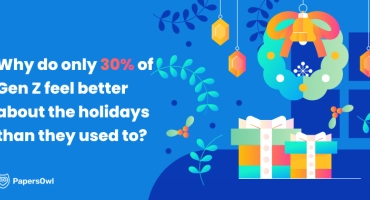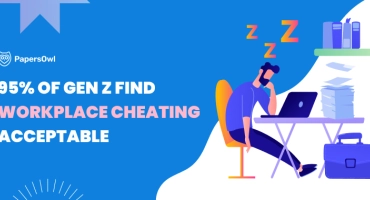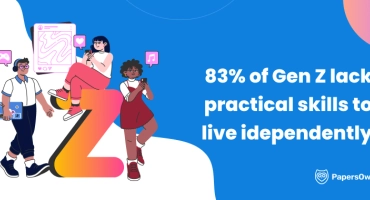Balancing Pressure and Mental Health: Why 60% of Gen Z Struggle to Prioritize Well-Being Over External Achievements
Table of contents
- 1 Take a Peek at 4 Key Takeaways
- 2 Why Investigating Anxiety?
- 3 Fear, Pressure, Expectation, and Other … Around Anxiety
- 4 Is Performance Anxiety Common Among Gen Z?
- 5 Garfield Isn’t the Only to Hate Mondays
- 6 Everyone Gets Nervous Before Big Events ─ Everything’s OK With You
- 7 External Validation Should Be Less Emphasized
- 8 Are You Really Procrastinating? Maybe It’s Just a Pointless Task
- 9 Physical Activity Supports Both Your Body and Your Mind
Take a Peek at 4 Key Takeaways
- 62% of respondents feel that their external achievements often outweigh their mental well-being.
- 87% believe performance anxiety is common in their generation, with 23% stating a fear of judgment or criticism as a main cause.
- 44% often rely on last-minute efforts to complete tasks, with 42% worrying about the quality of their work due to starting late.
- 66% of Gen Z experience physical symptoms of anxiety before or during every stressful situation (e.g., sweating, shaking, rapid heartbeat).
- 76% of Gen Z feel that anxiety levels would decrease if external validation were less emphasized.
Why Investigating Anxiety?
Are Gen Z in such an informational bubble that exacerbates their anxiety by expectations and amplifies repercussions of failure through social media coverage? The question is open.
For this reason, PapersOwl surveyed 2000 Gen Z to get their opinions about performance anxiety. This article is about what we’ve learned by analyzing the statistical data and opinion-based answers.
Fear, Pressure, Expectation, and Other … Around Anxiety
Are you experiencing performance anxiety, or do you belong to the blissful 2% of Gen Z who don’t have anxiety at all? Let’s discover it.
Blink twice if you recognize yourself in the following citations:
“The pressure to perform well leads me to increased anxiety”.
“There is pressure to succeed everywhere or someone else will”.
“Excellence is expected by everyone and everywhere, but achieving it is not always possible”.
“I think how people are critiqued on public media adds to the commonality of performance anxiety.”
“Since everything is posted on social media, it is there for the world to see if you ever mess up.”
But what does Gen Z mean, on average, when talking about performance anxiety (like statistically)?

Is Performance Anxiety Common Among Gen Z?
Absolutely — the data speaks for itself. A staggering 87% of Gen Z respondents confirm that performance anxiety is a widespread issue within their generation, reflecting the immense pressure they face in both personal and professional settings.

Anxiety levels fluctuate for many people throughout the year, with the most stress commonly reported during the summer (49%) and winter (52%) months. As the seasons change, external pressures like work, holidays, and social obligations can intensify feelings of anxiety. Our infographic highlights these seasonal trends, showing how certain times of the year are more anxiety-inducing than others.
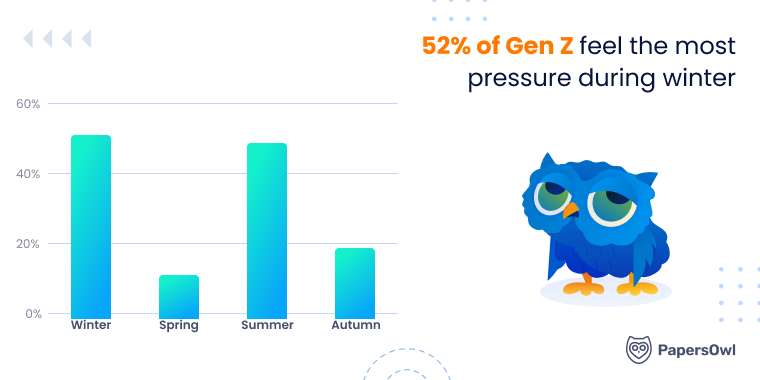
Garfield Isn’t the Only to Hate Mondays
It’s no surprise that Monday is the most stressful day of the week, especially for Gen Z. However, what might catch some off guard is that Thursday ranks the least stressful. Indeed, this midweek break offers some relief before the weekend rush.

Everyone Gets Nervous Before Big Events ─ Everything’s OK With You
The data reveals that a significant number of respondents often experience anxiety and pressure related to performance and tasks. For instance, 77% often or always feel nervous before big events, exams, or presentations, and 66% experience physical symptoms of anxiety during stressful situations.
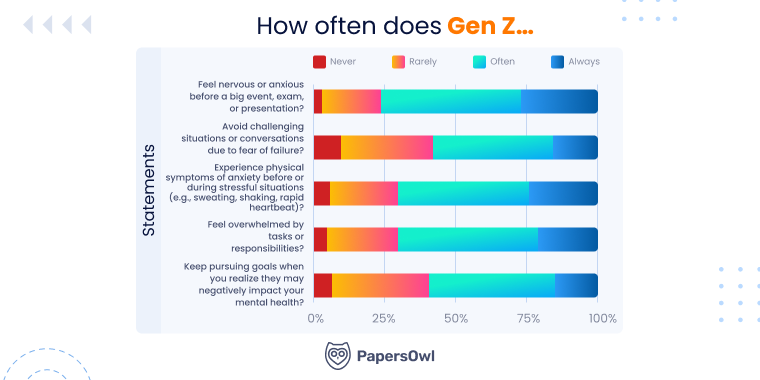
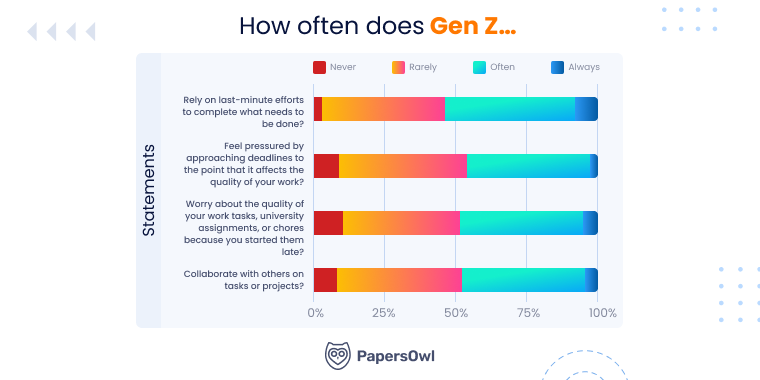
External Validation Should Be Less Emphasized
The data indicates that a substantial portion of respondents prioritize external achievements over their mental well-being, with 62% agreeing to some extent and 80% believing that societal pressures contribute significantly to their anxiety.
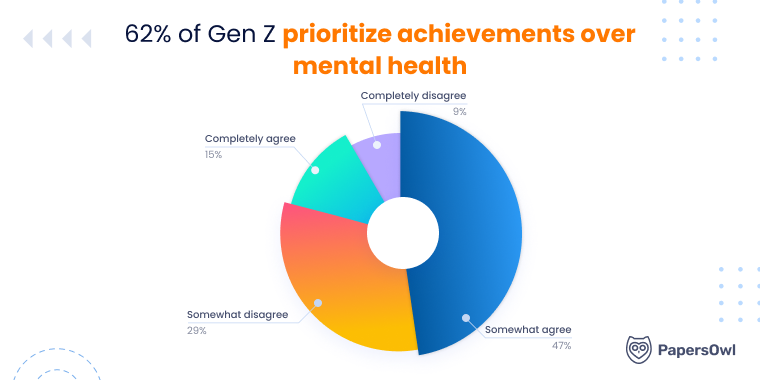

Moreover, 76% feel that anxiety levels would decrease if external validation were less emphasized, reflecting the pervasive impact of social expectations on mental health.

Are You Really Procrastinating? Maybe It’s Just a Pointless Task
The key factors that lead respondents to avoid tasks or responsibilities until the last moment are primarily a lack of motivation (42%) and feeling overwhelmed by the workload (42%). Fear of failure (42%) and procrastination (41%) also play significant roles.

Physical Activity Supports Both Your Body and Your Mind
54% of Gen Z are skeptical about the existence of a working coping mechanism against anxiety.

And yet, they still try to fight their anxiety with a variety of approaches, with 62% preferring physical activity and 42% practicing mindfulness. Of those practicing mindfulness, 70% engage in physical activities and 30% refer to counselor services at the same time, demonstrating a complex approach. 21%, though, don’t engage in any activity to fight anxiety.

But the most interesting question remains open. Suppose that many people are having performance anxiety exhibited in some form, and more than half of them think there is no working solution against it. What motivates them to complete their tasks nonetheless?

Methodology: Researchers from PapersOwl surveyed 2,000 members of Generation Z to compile this study. Randomly selected participants were asked to discuss their experiences, with no emphasis on a specific gender, ethnicity, or social background.

